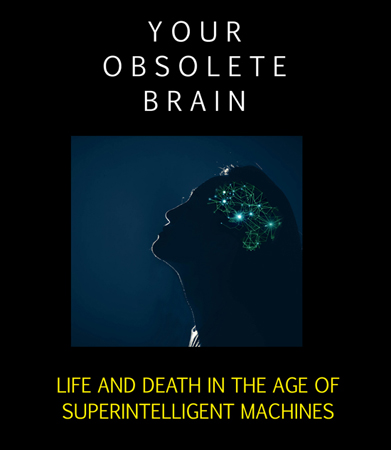
"We know what we are, but know not what we may be." William Shakespeare The machine can save you Row after row of textured ceiling tiles pass before your vision as an attendant in a leaf-green gown pushes the gurney along a brightly lit corridor. In a seemingly endless stream, unfamiliar faces peer down at you, some smiling, some anxious, others studious as if examining a laboratory specimen. Traveling through parting double doors, you find yourself lying in a gleaming white room beneath a cluster of circular light fixtures. Cold air wafts over you as the sheet is removed. A woman wearing a cloth mask hurriedly places a rigid plastic mouthpiece over your face and tells you, "Count backward from one hundred." As you start counting, the last thing you see as your consciousness fades is a set of four mechanical arms, each bearing a surgical instrument, hovering over your chest. The arms are guided by a computer, but the surgery will be controlled by a human surgeon sitting at a console 2,000 miles away. The machine can kill you. Against a blood red sky, the silhouette of a turret protrudes from an embankment overlooking a sparsely wooded plain. As darkness descends, the turret begins to move. No human can see what the turret sees as its sophisticated sensors sweep the horizon. Its gun is loaded with lethal radioactive bullets that, should they be unleashed, will explode on impact. The turret is programmed for one mission only: to detect, distinguish, and target an enemy soldier whether in daylight or in darkness. No human guidance or assistance is needed. Unlike a human sniper, the autonomous turret never sleeps, always acquires its target, and never misses. The machine can obsolete you. When you learned, not from your supervisor but from a news article on the internet, that your company planned to eliminate 2,000 jobs, your first reactions were denial, shock, betrayal, and, eventually, anxiety. You prayed against all odds that you would be among the spared, that your years of loyalty and uncontested competence would count for something. There was no pink slip or email, only a list of names posted on a bulletin board in the coffee room. You had no reason to suspect, a week later, standing in the long line at the Unemployment Office, that you had been replaced by a machine-one that is smarter, works faster and more efficiently, and never calls in sick. The machine can empower you. Hannah wakes each morning eager for class. Her favorite subjects are astronomy, theoretical physics, Sub Saharan African languages, and the history of education in antiquity. To her, it seems like only yesterday she could barely perform the simplest calculus equation or speak more than a few phrases in Matabele. In fact, it was three months ago. Greeting her tutor, she is ready for an assessment of her knowledge of the behavior of matter/antimatter particle pairs approaching the perimeter of a black hole. To her computer-tutor, Hannah is an average learner, has a tendency to mumble, and is fifteen years old. If you find these scenarios far-fetched, you need to know that the technologies portrayed in these snippets of some seemingly future world already exist. Artificial Intelligence (AI) can diversely cure, kill, obsolete, or educate in ways previously only imagined. AI advances in medical diagnosis and treatment have the potential to eradicate diseases that were previously thought to be incurable. Yet, what most disturbs many people about AI research today is the horrific potential to kill, on a scale rivaled only by nuclear weapons. Others are concerned by predictions that robots and other AI-empowered devices will replace half of the world's work force. Nevertheless, the educational technologies already exist to facilitate, augment, and accelerate learning as never before imagined. AI development now promises spectacular advances in medical diagnosis and treatment, development of pharmaceuticals, and the eradication of diseases and famine. However, the specter of autonomous weapons equipped with human reasoning, super-intelligent computers disdainful of their intellectually human inferiors, and virus-like nanorobot viruses is more real than most people want to believe. The means to create weapons that operate independently of human operators is easily accessible. From flying laser cannons to robot tanks, development of AI-controlled weapons has already spawned a futuristic arms race. It is already too late to ask: can we, should we, will we? The super intelligent machine, able to think like a human, but vastly more intelligent than any or all of us, is coming. Whether you're ready or not. ......................................................................................................................... Home | Books | Art | Travelog | Divelog | Dennis Copyright (c) 2017, Dennis L. Foster |